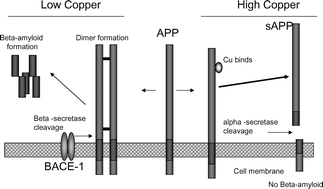Brain proteins that mind metals: a neurodegenerative perspective
Abstract
There are numerous neurodegenerative diseases but Alzheimer's disease and Parkinson's disease are the most common. In contrast, prion diseases are very rare but have sparked vast interest and study because of their potential threat. All three diseases have a common basis as they are linked to


 Please wait while we load your content...
Please wait while we load your content...